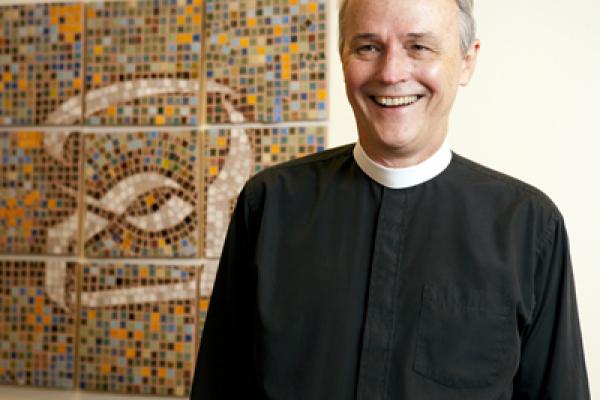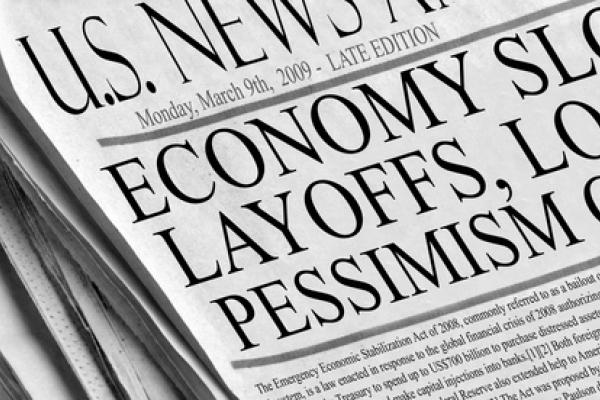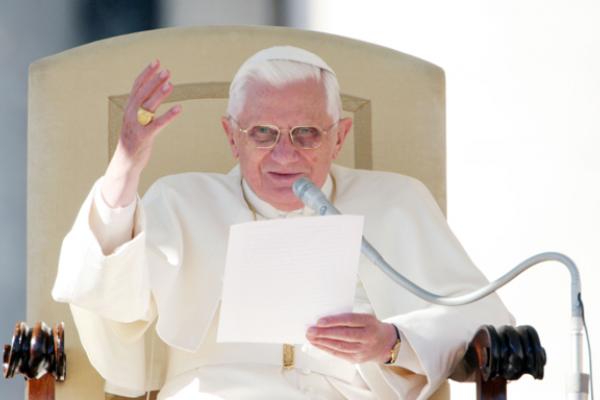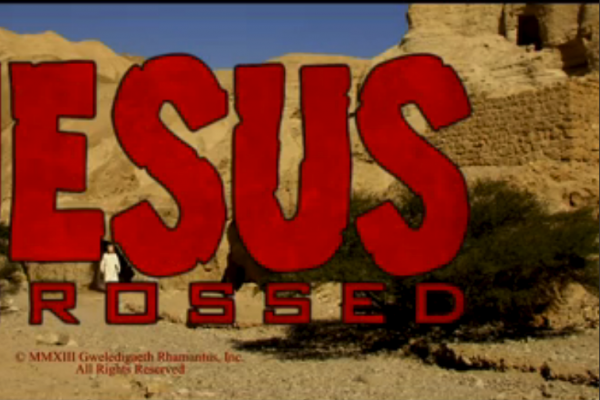“For I was hungry and you gave me food, I was thirsty and you gave me drink, I was a stranger and you welcomed me.”
WASHINGTON — This passage from the Gospel of Matthew inviting us to welcome strangers into our midst could not be more salient than it is now, as our lawmakers embark on the long-awaited debate over immigration reform.
Senate hearings recently began after both President Obama and Sen. Marco Rubio of Florida made a strong call for comprehensive immigration reform during and after the State of the Union address. Their statements were encouraging, but lawmakers have their work cut out for them in the coming months — and millions of lives depend on reform.
Here’s the missing piece: Any discussion of immigration reform must recognize the international causes that drive unauthorized migration to the United States: hunger, poverty, lack of economic opportunity and inequality. Without addressing the root causes, the numbers of unauthorized immigrants in the United States will continue to rise.
Current events, like much about our lives, frequently leave us hopeless, fearful, and uncertain. Religious faith isn’t a matter of wishing away these experiences; it involves perceiving God in the midst of our hardships.
I still remember one Friday night when I, an overly sensitive preteen, made a conscious decision to stop watching the nightly news with the rest of my family. I found what I saw too depressing and threatening: crime after crime, yet another house fire, economic challenges, too much Cold War.
I don’t recall how old I was when I mustered the willpower to face the news again on a regular basis. But a quick scan of the latest headlines makes me wonder why I still subject myself to it: the imminent and potentially crippling sequester, American drones flying in and out of Niger, Iran’s growing nuclear capability, recurring bloodshed in Syria. Maybe I had it easier back in middle school.
Life inside a bubble can feel complete, even dynamic, as the bubble’s surface shimmers and yet retains form.
When the surface is breached, the bubble collapses immediately, shattering into a liquid spray faster than a metal object can fall through where it used to be. What looked like a permanent structure is, in fact, uncertain and quickly lost.
We saw a ”tech bubble” burst 13 years ago. What had seemed durable and laden with value turned out to be vapor. The “housing bubble” came next. Some think another “tech bubble” is about to burst.
The bubble I see bursting is establishment Christianity in America. It is bursting ever so slowly, even as millions of people still find life, meaning, safety, and structure inside. But one failing congregation at a time, the surface of shimmering shape is being breached.
Mary Sanchez, op-ed writer for the Kansas City Star, offers in her column something many of us probably didn’t know:
“There’s a little-known fact about guns in America, and it’s one that the firearms industry and its political allies don’t like to dwell on: The rate of gun ownership in America is declining.
“This has been the case for decades. Rates peaked way back in the 1970s, the era of disco balls and bell bottoms. In 1977, 54 percent of American households reported owning guns. In 2010, the last time the General Social Survey data was compiled, the percentage had shrunk to 32.”
Sanchez concludes that the strong opposition to anti-gun violence measures is driven more by the need of gun manufacturers to sustain their market than it is about the Second Amendment.
If you haven’t been paying close attention, or are still confused by the “sequester” heading for us like a runway train, veteran Capitol Hill reporter Steven T. Dennis offers “15 Things You Need to Know About the Sequester.” He calls it “things you need to know about how the sequester came to be, how it will be implemented, and the choices lawmakers face as they seek to avert it.” It’s a helpful guide thrugh the maze.
I’ve been asked several times in the last year or so, “How is it living in community?” Well, you see, that’s not a question to take lightly. Describing living in community takes more than just a quick response to a seemingly simple question. It’s wonderful. It’s difficult. It has its ups and downs. It’s life-giving and sometimes it feels like it takes the life out of you. How are you supposed to relay all that in a simple answer?
“Stepping into community is far riskier than expected. It’s far worse than you expect it to be. But in the end, it’s far better than you could ever imagine.”
With that line, along with the rest of his new book, Unexpected Gifts: Discovering the Way of Community, author Christopher Heuertz offers a thorough reflection on how it is to live in community. Granted, he takes the space of 200 pages. But this book does give some ample reflection to those ups and downs, the failures and the joys — the, indeed, unexpected gifts — of community. With an honest and open tone, Unexpected Gifts reads like a story-filled guide to relationships, to living in community, living as Church, as Christ would have us do.
VATICAN CITY — Pope Benedict XVI will be known as “Pope Emeritus” after his retirement on Feb. 28, and will continue to wear white vestments, the Vatican announced on Tuesday.
Ever since Benedict’s surprise announcement that he would become the first pope in 600 years to resign, there had been wide speculation about seemingly small issues, such as what he would be called or whether he would retain the title of “pope.” Such details, however, carry great symbolical value within the tradition-bound Roman Catholic Church.
The Rev. Federico Lombardi, the Vatican’s chief spokesman, told reporters that Benedict will continue to be called “His Holiness” and that his title will be “Pope Emeritus” or “Emeritus Roman Pontiff.”
He said Benedict had decided the issue himself, after consultations with experts.
The myth that President Barack Obama closed Guantanamo his first year in office persists, but four years later the detainees are still there. Can justice be served?
I wanted to find out for myself. Over the past month, the Obama administration has started prosecuting some of the Guantanamo prisoners. They are tried in a specially constructed courtroom at Guantanamo, under military commissions rules touted to restore the rights absent under former President George W. Bush’s tribunals.
The trial logistics are a challenge: the tribunals convene periodically on the Guantanamo naval base under tightly controlled conditions. Additionally, the hearings are simulcast to military bases in the U.S. where members of the public and press are allowed to view.
I went to the Ft. Meade army base in Maryland to view the proceedings via closed circuit TV. While I was there, Khalid Sheikh Mohammad, alleged ringleader in the September 11, 2001, attacks, and four other men charged with various crimes related to 9/11, were on trial. The government is asking for the death penalty for all five men.
Whenever I talk with people about Jesus and nonviolence, a curious thing happens. Someone will inevitably raise his hand (and it’s always his hand), call me a wuss, and then accuse me of making Jesus-Christ-Our-Lord-And-Savior into my own wussy image.
First, the accusation that I’m a wuss is totally true. No one can surpass my wussiness. I run from confrontation, and if I ever get into a fight my money is on the other guy.
Now, to the second accusation that a nonviolent Jesus is a projection of my own wussy imagination: That is false and, in fact, the reverse is true – a violent Jesus is a god made in our own image. As a self-professed wuss, I would love a bad-ass-machine-gun-toting Jesus who violently defends me against my enemies. I want the Jesus depicted in Saturday Night Live’s sketch DJesus Ucrossed. (A sketch satirizing Quentin Tarantino’s Django Unchained.) As David Henson brilliantly states in his post “DJesus Uncrossed: Tarantino, Driscoll and the Violent Remaking of Jesus in America,” the sketch “pulls back the curtain and shows us just how twisted our Jesus really is: We want a Savior like the one SNL offers. We want the Son of God to kick some ass and take some names. Specifically, our enemies’ names.”
David goes on to quote Mark Driscoll, a megachurch pastor from Seattle whose theology of hate has had a major influence on American Christianity. Driscoll states,
In Revelation, Jesus is a prize fighter with a tattoo down his leg, a sword in His hand and the commitment to make someone bleed. That is a guy I can worship. I cannot worship the hippie, diaper, halo Christ because I cannot worship a guy I can beat up.





